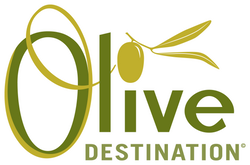
EXTRA VIRGIN OLIVE OIL: THE CORE OF THE MEDITERRANEAN DIET
Excerpts from an article by Cynthia Harriman, Director of Food and Nutrition Strategies Research from Spain backs up what your taste buds have known all along: sautéing vegetables in a little olive oil is preferable to boiling them. Scientists who cooked a variety of vegetables by different methods and then measured the vegetables’ antioxidants and phenols (health-promoting compounds) found that “the presence of EVOO (Extra Virgin Olive Oil) in cooking increased the phenolics…in the raw foods.” Interestingly, adding olive oil to the water when boiling didn’t offer the same benefits as frying or sautéing in EVOO. EVOO plays a key role in getting the most out of uncooked foods, too. Top your salad with fat-free dressing and your body won’t be able to access key fat-soluble vitamins like Vitamin A. A simple vinaigrette made with olive oil helps unlock all the goodness in your salad. Bonus: When your vegetables—raw or cooked—taste better, you’re more likely to want to fill up on them. Olive oil is at the core of the Mediterranean Diet. In fact, some food historians define the Mediterranean Diet as the “traditional eating patterns in areas around the Mediterranean Sea where olives are grown.” Although study after study finds that the Med Diet’s health benefits come from the interplay of many food groups, olive oil is always part of the picture. When it comes to choosing olive oils, make sure to look for real EVOO. EVOO is produced by mechanically crushing olives to separate the liquids from the solids, then further separating the liquids into water and oil. No heat or chemicals are used in this process, which is the starting point for EVOO. Real EVOO then goes through testing. Global standards from the International Olive Council (IOC) include several lab tests for a certain level of acidity and other metrics, along with two sensory tests, performed by a trained olive oil taster. Various seals and certification programs attest that the oil has met these standards at the time it’s bottled Oil that doesn’t qualify as EVOO—either because it didn’t meet the standards, or because it was further refined with heat and chemicals—is found on store shelves, with names like light, extra light, classic, pure, or just plain olive oil. These choices will be less expensive than EVOO, but will have lower levels of the healthy compounds found in real EVOO. Even bottles labeled as EVOO usually fall short of the standards. Olive oil is in fact a fruit juice—the juice of the olive fruit—and as such has a limited shelf life. Since exposure to heat, air, and light will degrade the quality of any olive oil over time, follow these tips for buying and storing your EVOO: Buy from a trusted and knowledgeable source; ask to see the chemistry that proves the oil you’re buying is real extra virgin. Fresh EVOO is good for about two years after purchasing but quality will be even better in the first year. Choose oils in dark bottles or tins, since light degrades the quality of EVOO. Keep your EVOO in a dark cupboard or counter top away from the stove and sunlight. For inspiration in using EVOO check out the recipes on our website at www.olivedestination.com
